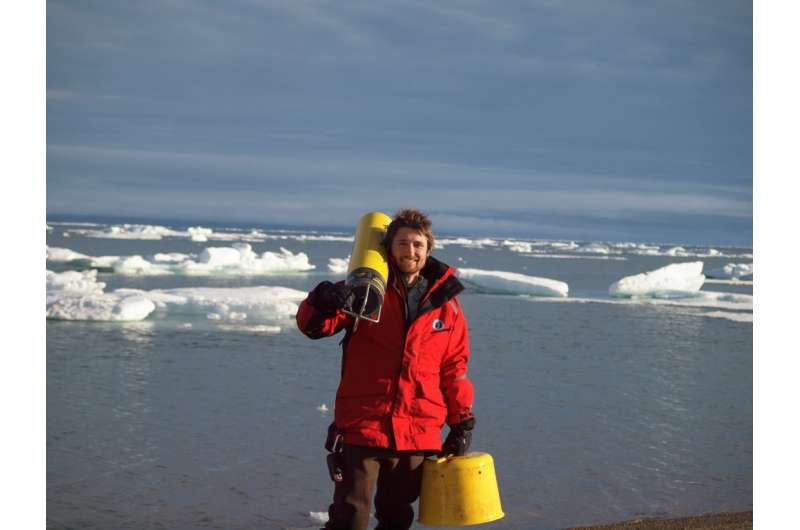How to reduce the impact of shipping vessel noise on fish? Slow them down

The western Canadian Arctic's natural underwater soundscape has been shielded from the din of commercial shipping by the sea ice that covers the area, rendering it mostly inaccessible to shipping vessels. But with large amounts of ice shrinking in the Arctic Ocean, a growing number of ships are gaining access to the area. This trend is expected to accelerate.
One concern with vessel transits is how noise pollution can detrimentally affect marine animals—including Arctic cod—given the critical importance of these fish in the arctic food web.
"Noise from shipping traffic can lead to acoustic masking, reducing the ability of cod and other marine animals to detect and use sound for communication, foraging, avoiding predators, reproduction, and navigation," said Matt Pine, a research fellow at the University of Victoria and Wildlife Conservation Society Canada (WCS Canada).
Pine and his colleagues at the University of Victoria, WCS Canada and JASCO Applied Sciences have found that the negative impact of noise from shipping vessels can be mitigated by reducing the ship's speed. They will present their research at the Acoustical Society of America's 176th Meeting, held in conjunction with the Canadian Acoustical Association's 2018 Acoustics Week in Canada, Nov. 5-9 at the Victoria Conference Centre in Victoria, Canada.
Pine's research team investigated potential relief in acoustic masking by reducing the speed of container and cruise ships by 10 knots, from 25 knots (equivalent to about 17 mph) to 15 knots (equivalent to about 11.5 mph).
The research has involved advanced propagation modeling of ship noise and the acoustic masking effects on arctic cod, two types of whales (belugas and bowheads) and two types of seals (bearded and ringed).
The researchers incorporated field data to produce computer simulations in which container and cruise ships passed through the western Canadian Arctic via the Northwest Passage.
They explored the effect each type of ship had on the volume of the ocean surrounding a fish, seal and whale within which prey, a predator or other danger could be heard by that animal.
"Our modeling study shows that reduction in acoustic masking effects can be substantial," Pine said. However, he cautioned, the findings are not so clear-cut.
"Acoustic masking effects are quite dynamic, and slowing down a vessel doesn't necessarily equal the same benefits for all animals," he explained.
For example, sometimes smaller masking effects were seen in certain weather conditions. For the fish, however, weather conditions did not make a difference in the masking effects because their hearing thresholds in most frequency bands are above the ambient levels.
"In this case, the type of vessel was more important," Pine said, "with cruise ships reducing their masking effect more if slowed by 10 knots than the container vessels nearer the vessel."
More information: Presentation #1aAB1, "Assessing vessel slowdown as an option for reducing acoustic masking for Arctic cod in the western Canadian Arctic," by Matthew Pine, David E. Hannay, Stephen J. Insley, William D. Halliday and Francis Juanes will be Monday, Nov. 5, 8:50 a.m. in the Crystal Ballroom of the Victoria Conference Center in Victoria, British Columbia, Canada.
Provided by Acoustical Society of America




















